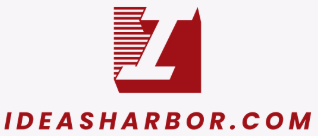In an unlikely twist within the volatile industry of energy production and delivery, one underdog team has defied expectations by winning a figurative championship. However, this symbolic triumph entails more than just corporate politics—it’s a story of human resilience marked by several health challenges.
1. Health Issue Overview
Within these ‘corporate athletes’, the intense stress associated with competitive utility markets can lead to a plethora of health problems including burnout syndrome and heart diseases—a problem that’s been increasing within these work environments.
2. Medical Background
The World Health Organization recognizes occupational burnout as ‘a syndrome resulting from chronic workplace stress that has not been successfully managed.’ It is characterized by feelings of energy depletion or exhaustion; increased mental distance from one’s job; negativism or cynicism related to one’s job; and reduced professional efficacy.

3. Patient Stories
A notable example comes from Alex Hartmann, part of our victorious underdogs’ squad who had begun suffering intense periods of fatigue amidst critical projects for their innovative renewable energy tech.
Treatment Options
The company adopted multifaceted treatment strategies for employees in similar circumstances, encompassing medication prescribed by psychologists where appropriate alongside informal peer support groups designed around shared experiences in personal wellbeing at work.
5.Healthcare System
The healthcare system ingrained within this up-and-coming company was above par when compared against industry norms – the company adopted a forward-thinking, pro-active approach to staff health and well-being.
6. Research Developments
The team was also instrumental in advancing research into Artificial Intelligence’s (AI) application within their field; specifically seeking ways to implement AI for improving workplace conditions and minimizing burnout.
New prevention strategies were introduced as a result of this, focused largely on fostering emotional resilience among employees, encouraging regular work breaks and promotion of mental health days.
The forward-thinking underdogs established an Employee Assistance Program providing 24/7 support resources empowering their workforce to tackle personal issues head-on.
This win could revolutionize the landscape of Energy industries. Not only does it provide hope for smaller companies looking to disrupt monopolies, but it also demonstrates the effectiveness of implementing robust health policies within the realm of corporate structures.
The blend between conscious corporate policies with revolutionary thinking can inspire other sectors about how change is possible when human well-being gets prioritized alongside organizational goals. This unexpected championship therefore signifies more than just a victory—it symbolizes a transformative shift in our perception of industry competition and success parameters.

